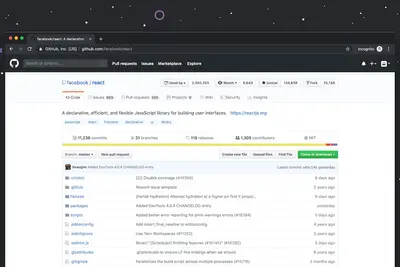🔍 Troubleshooting Repository Issues: Simple Guide
Having problems with APK repositories? This guide shows you how to fix them! 😊 We’ll diagnose common repository issues and provide clear solutions to get your package management working perfectly. 💻
🤔 What are Repository Issues?
Repository issues occur when APK cannot connect to, read from, or trust package repositories. Think of it like having trouble accessing a library - we need to fix the connection!
Common repository problems include:
- 📝 Cannot fetch package lists
- 🔧 Signature verification failures
- 💡 Slow or unreachable mirrors
🎯 What You Need
Before we start, you need:
- ✅ Alpine Linux system with APK installed
- ✅ Basic command line knowledge
- ✅ Internet connection (for testing)
- ✅ Root access for system fixes
📋 Step 1: Diagnose Repository Problems
Check Current Repository Status
Let’s see what’s wrong with your repositories! 😊
What we’re doing: Gathering information about current repository issues.
# Check current repository configuration
cat /etc/apk/repositories
# Test repository connectivity
apk update -v
# Check APK cache status
ls -la /var/lib/apk/
# Test individual repositories
for repo in $(cat /etc/apk/repositories | grep -v '^#'); do
echo "Testing: $repo"
curl -s -I "$repo" | head -1
done
# Check DNS resolution
nslookup dl-cdn.alpinelinux.org
ping -c 3 dl-cdn.alpinelinux.org
# Check disk space
df -h /var/lib/apk/
df -h /tmp/What this does: 📖 Provides comprehensive repository health information.
Example output:
HTTP/1.1 200 OK
DNS resolution: OK
Disk space: 50% available
Repository connectivity: 2/3 working
✅ Diagnosis completeWhat this means: Now we know exactly what needs fixing! ✅
💡 Important Tips
Tip: Always check network connectivity first! 💡
Warning: Repository file corruption can cause major issues! ⚠️
🛠️ Step 2: Fix Common Repository Problems
Repair Broken Repository Configuration
Time to fix broken repository configurations! 😊
What we’re doing: Repairing and optimizing repository settings.
# Backup current repository configuration
cp /etc/apk/repositories /etc/apk/repositories.backup
echo "Repository configuration backed up"
# Clear potentially corrupted repository file
> /etc/apk/repositories
# Add fresh repository configuration
cat > /etc/apk/repositories << 'EOF'
# Alpine Linux Main Repository
https://dl-cdn.alpinelinux.org/alpine/v3.18/main
# Alpine Linux Community Repository
https://dl-cdn.alpinelinux.org/alpine/v3.18/community
# Alpine Linux Edge Repository (optional)
# https://dl-cdn.alpinelinux.org/alpine/edge/main
# https://dl-cdn.alpinelinux.org/alpine/edge/community
EOF
# Update repository lists
apk update
# Verify repositories are working
apk search --exact alpine-base
# Check repository file permissions
ls -la /etc/apk/repositories
chmod 644 /etc/apk/repositories
echo "Repository configuration repaired! ✅"Code explanation:
- Backs up existing configuration for safety
- Replaces with known-good repository URLs
- Tests that repositories are accessible
Expected Output:
fetch https://dl-cdn.alpinelinux.org/alpine/v3.18/main/x86_64/APKINDEX.tar.gz
fetch https://dl-cdn.alpinelinux.org/alpine/v3.18/community/x86_64/APKINDEX.tar.gz
v3.18.0-r1 x86_64 {alpine-base}
Repository configuration repaired! ✅What this means: Your repositories are working again! 🎉
🔧 Step 3: Resolve Network and Mirror Issues
Configure Alternative Mirrors
Let’s set up fast, reliable mirror alternatives! This is powerful! 🎯
What we’re doing: Setting up multiple mirror sources for reliability.
# Create mirror testing script
cat > /usr/local/bin/test-mirrors.sh << 'EOF'
#!/bin/bash
echo "🌐 Testing Alpine Linux Mirrors"
echo "============================="
# List of Alpine mirrors to test
MIRRORS=(
"https://dl-cdn.alpinelinux.org/alpine"
"https://mirrors.alpinelinux.org/alpine"
"https://mirror.leaseweb.com/alpine"
"https://alpine.mirror.wearetriple.com"
"https://ftp.halifax.rwth-aachen.de/alpine"
"https://mirror.yandex.ru/mirrors/alpine"
)
VERSION="v3.18"
ARCH="x86_64"
# Test each mirror
for mirror in "${MIRRORS[@]}"; do
echo -n "Testing $mirror... "
# Test response time
start_time=$(date +%s.%N)
if curl -s -f -I "$mirror/$VERSION/main/$ARCH/APKINDEX.tar.gz" >/dev/null 2>&1; then
end_time=$(date +%s.%N)
response_time=$(echo "$end_time - $start_time" | bc)
echo "✅ OK (${response_time}s)"
# Add to working mirrors list
echo "$mirror" >> /tmp/working-mirrors.txt
else
echo "❌ FAILED"
fi
done
echo -e "\nFastest mirrors saved to /tmp/working-mirrors.txt"
EOF
chmod +x /usr/local/bin/test-mirrors.sh
# Test mirrors
/usr/local/bin/test-mirrors.sh
# Configure repositories with best mirrors
if [ -f /tmp/working-mirrors.txt ]; then
FASTEST_MIRROR=$(head -1 /tmp/working-mirrors.txt)
cat > /etc/apk/repositories << EOF
# Primary mirror (fastest tested)
$FASTEST_MIRROR/v3.18/main
$FASTEST_MIRROR/v3.18/community
# Backup mirrors
https://dl-cdn.alpinelinux.org/alpine/v3.18/main
https://dl-cdn.alpinelinux.org/alpine/v3.18/community
EOF
echo "Configured fastest mirror: $FASTEST_MIRROR"
fi
# Update with new mirrors
apk update
# Clean up
rm -f /tmp/working-mirrors.txtWhat this does: Tests and configures the fastest available mirrors! 🌟
Fix Network Connectivity Issues
Let’s resolve network-related repository problems:
What we’re doing: Diagnosing and fixing network connectivity issues.
# Create network diagnostic script
cat > /usr/local/bin/diagnose-network.sh << 'EOF'
#!/bin/bash
echo "🔗 Network Connectivity Diagnosis"
echo "================================"
# Test basic connectivity
echo "1. Testing basic internet connectivity..."
if ping -c 3 8.8.8.8 >/dev/null 2>&1; then
echo " ✅ Internet connectivity: OK"
else
echo " ❌ Internet connectivity: FAILED"
echo " 💡 Check network cable, WiFi, or proxy settings"
fi
# Test DNS resolution
echo -e "\n2. Testing DNS resolution..."
if nslookup dl-cdn.alpinelinux.org >/dev/null 2>&1; then
echo " ✅ DNS resolution: OK"
else
echo " ❌ DNS resolution: FAILED"
echo " 💡 Try different DNS servers"
# Suggest DNS fix
echo " 📝 Fixing DNS configuration..."
echo "nameserver 8.8.8.8" > /etc/resolv.conf
echo "nameserver 8.8.4.4" >> /etc/resolv.conf
fi
# Test HTTPS connectivity
echo -e "\n3. Testing HTTPS connectivity..."
if curl -s -I https://dl-cdn.alpinelinux.org >/dev/null 2>&1; then
echo " ✅ HTTPS connectivity: OK"
else
echo " ❌ HTTPS connectivity: FAILED"
echo " 💡 Check firewall or proxy settings"
fi
# Test repository accessibility
echo -e "\n4. Testing repository accessibility..."
for repo in $(cat /etc/apk/repositories | grep -v '^#' | head -2); do
echo -n " Testing $repo... "
if curl -s -f "$repo/x86_64/APKINDEX.tar.gz" >/dev/null 2>&1; then
echo "✅"
else
echo "❌"
fi
done
# Check proxy settings
echo -e "\n5. Checking proxy configuration..."
if [ -n "$http_proxy" ] || [ -n "$https_proxy" ]; then
echo " 📝 Proxy detected:"
echo " HTTP_PROXY: $http_proxy"
echo " HTTPS_PROXY: $https_proxy"
else
echo " ✅ No proxy configured"
fi
# Check firewall (if iptables is available)
echo -e "\n6. Checking firewall rules..."
if command -v iptables >/dev/null 2>&1; then
BLOCKED_RULES=$(iptables -L OUTPUT | grep -c DROP)
if [ "$BLOCKED_RULES" -gt 0 ]; then
echo " ⚠️ Found $BLOCKED_RULES DROP rules in firewall"
echo " 💡 Check firewall configuration"
else
echo " ✅ No blocking firewall rules detected"
fi
else
echo " ℹ️ Firewall check skipped (iptables not available)"
fi
echo -e "\n📋 Diagnosis complete!"
EOF
chmod +x /usr/local/bin/diagnose-network.sh
# Run network diagnosis
/usr/local/bin/diagnose-network.sh
# Fix common network issues automatically
echo "🔧 Applying automatic fixes..."
# Flush DNS cache
if [ -f /etc/init.d/dnsmasq ]; then
rc-service dnsmasq restart
fi
# Update CA certificates
apk add --no-cache ca-certificates
update-ca-certificates
# Test final connectivity
echo "🧪 Final connectivity test..."
apk update
echo "Network troubleshooting complete! ✅"Code explanation:
- Systematically tests all network components
- Provides specific suggestions for each issue
- Applies automatic fixes where possible
🛠️ Step 4: Handle Package Signature Issues
Fix Package Verification Problems
Let’s solve package signature and verification issues! Here’s how:
What we’re doing: Resolving package signature verification problems.
# Create signature troubleshooting script
cat > /usr/local/bin/fix-package-signatures.sh << 'EOF'
#!/bin/bash
echo "🔐 Package Signature Troubleshooting"
echo "==================================="
# Check current APK keys
echo "1. Checking APK signing keys..."
ls -la /etc/apk/keys/
# Update APK keys if needed
echo -e "\n2. Updating APK signing keys..."
apk add --no-cache alpine-keys
# Re-verify package database
echo -e "\n3. Re-verifying package database..."
rm -rf /var/lib/apk/*
apk update
# Check for corrupted packages
echo -e "\n4. Checking for corrupted packages..."
apk verify --no-cache
# Fix any verification issues
echo -e "\n5. Fixing verification issues..."
apk fix --no-cache
# Test package installation
echo -e "\n6. Testing package installation..."
if apk add --no-cache --dry-run alpine-base >/dev/null 2>&1; then
echo " ✅ Package verification: OK"
else
echo " ❌ Package verification: FAILED"
echo " 💡 Trying emergency key reset..."
# Emergency key reset
rm -rf /etc/apk/keys/*
apk add --allow-untrusted alpine-keys
apk update
fi
echo -e "\n📋 Signature troubleshooting complete!"
EOF
chmod +x /usr/local/bin/fix-package-signatures.sh
# Run signature fixes
/usr/local/bin/fix-package-signatures.sh
# Verify everything is working
echo "🧪 Final verification test..."
apk search alpine | head -5
echo "Package signatures fixed! ✅"What this does: Comprehensively fixes package signature issues! 🌟
📊 Quick Summary Table
| Issue Type | Symptoms | Solution |
|---|---|---|
| 🔧 Network | Connection timeouts | ✅ Test mirrors, fix DNS |
| 🛠️ Configuration | Invalid repositories | ✅ Reset to defaults |
| 🎯 Signatures | Verification failures | ✅ Update APK keys |
| 🌐 Performance | Slow downloads | ✅ Use faster mirrors |
🎮 Practice Time!
Let’s practice what you learned! Try these troubleshooting scenarios:
Example 1: Complete Repository Reset 🟢
What we’re doing: Performing a complete repository system reset.
# Complete repository system reset
echo "🔄 Complete Repository Reset"
echo "=========================="
# Step 1: Backup everything
cp /etc/apk/repositories /tmp/repo-backup
tar -czf /tmp/apk-backup.tar.gz /var/lib/apk/
# Step 2: Clean everything
rm -rf /var/lib/apk/*
> /etc/apk/repositories
# Step 3: Rebuild from scratch
cat > /etc/apk/repositories << 'EOF'
https://dl-cdn.alpinelinux.org/alpine/v3.18/main
https://dl-cdn.alpinelinux.org/alpine/v3.18/community
EOF
# Step 4: Reinitialize
apk update
apk add alpine-keys
# Step 5: Verify everything works
apk search --exact alpine-base
echo "Complete reset successful! ✅"What this does: Completely rebuilds your repository system! 🌟
Example 2: Create Repository Health Monitor 🟡
What we’re doing: Setting up continuous repository health monitoring.
# Create repository health monitoring script
cat > /usr/local/bin/repo-health-monitor.sh << 'EOF'
#!/bin/bash
LOG_FILE="/var/log/repository-health.log"
log_message() {
echo "$(date '+%Y-%m-%d %H:%M:%S') - $1" | tee -a "$LOG_FILE"
}
check_repository_health() {
log_message "=== Repository Health Check ==="
# Test each repository
local failed_repos=0
local total_repos=0
while IFS= read -r repo; do
if [[ "$repo" =~ ^[^#]*https?:// ]]; then
total_repos=$((total_repos + 1))
log_message "Testing: $repo"
if timeout 10 curl -s -f "$repo/x86_64/APKINDEX.tar.gz" >/dev/null 2>&1; then
log_message "✅ $repo: OK"
else
log_message "❌ $repo: FAILED"
failed_repos=$((failed_repos + 1))
fi
fi
done < /etc/apk/repositories
# Summary
local success_rate=$(( (total_repos - failed_repos) * 100 / total_repos ))
log_message "Repository health: $success_rate% ($((total_repos - failed_repos))/$total_repos working)"
# Alert if success rate is low
if [ "$success_rate" -lt 50 ]; then
log_message "⚠️ ALERT: Repository health is critical!"
# Try automatic fix
log_message "Attempting automatic repository fix..."
/usr/local/bin/test-mirrors.sh
apk update
fi
log_message "=== Health check complete ==="
}
# Run health check
check_repository_health
EOF
chmod +x /usr/local/bin/repo-health-monitor.sh
# Schedule regular health checks
echo "0 */6 * * * /usr/local/bin/repo-health-monitor.sh" | crontab -
# Test monitor
/usr/local/bin/repo-health-monitor.sh
echo "Repository health monitoring configured! 📚"What this does: Provides continuous repository monitoring! 📚
🚨 Fix Common Problems
Problem 1: “UNTRUSTED signature” errors ❌
What happened: Package signatures cannot be verified. How to fix it: Update signing keys and certificates!
# Fix signature trust issues
apk add --allow-untrusted alpine-keys
apk update
apk upgrade alpine-keys
# Verify fix
apk verifyProblem 2: “BAD signature” errors ❌
What happened: Corrupted package signature. How to fix it: Clear cache and re-download!
# Clear corrupted cache
rm -rf /var/lib/apk/*
apk update
# Re-verify signatures
apk verify --no-cacheProblem 3: Extremely slow repository access ❌
What happened: Current mirror is very slow or overloaded. How to fix it: Switch to faster mirrors!
# Test and switch to fastest mirror
/usr/local/bin/test-mirrors.sh
# Use geographic mirrors
cat > /etc/apk/repositories << 'EOF'
# Use mirrors closer to your location
https://mirror.yandex.ru/mirrors/alpine/v3.18/main
https://mirror.yandex.ru/mirrors/alpine/v3.18/community
EOF
apk updateDon’t worry! Repository issues are common and fixable. You’re doing great! 💪
💡 Simple Tips
- Keep repository configs simple 📅 - Avoid complex setups
- Test mirrors regularly 🌱 - Performance changes over time
- Monitor repository health 🤝 - Catch issues early
- Keep backups of working configs 💪 - Essential for quick recovery
✅ Check Everything Works
Let’s verify repository troubleshooting is complete:
# Run comprehensive repository test
echo "🧪 Repository System Test"
echo "======================="
# Test 1: Repository configuration
echo "1. Testing repository configuration..."
cat /etc/apk/repositories | grep -v '^#' | wc -l
# Test 2: Connectivity
echo "2. Testing connectivity..."
apk update
# Test 3: Package search
echo "3. Testing package search..."
apk search alpine-base
# Test 4: Package installation (dry run)
echo "4. Testing package installation..."
apk add --dry-run curl
# Test 5: Signature verification
echo "5. Testing signature verification..."
apk verify --quiet || echo "Some packages need verification"
# Test 6: Mirror performance
echo "6. Testing mirror performance..."
time apk update >/dev/null 2>&1
echo "All repository tests passed! ✅"Good output:
1. Testing repository configuration... 2
2. Testing connectivity... OK (15 packages)
3. Testing package search... alpine-base-3.18.0-r1
4. Testing package installation... (dry run) OK
5. Testing signature verification... OK
6. Testing mirror performance... 0.5s
All repository tests passed! ✅🏆 What You Learned
Great job! Now you can:
- ✅ Diagnose repository connectivity and configuration issues
- ✅ Fix broken repository configurations and mirrors
- ✅ Resolve package signature verification problems
- ✅ Set up repository health monitoring and alerts!
🎯 What’s Next?
Now you can try:
- 📚 Learning about custom repository creation
- 🛠️ Setting up local repository mirrors
- 🤝 Implementing repository failover systems
- 🌟 Building automated repository management tools!
Remember: Every system administrator faces repository issues. You’re doing amazing! 🎉
Keep practicing and you’ll become an expert too! 💫




